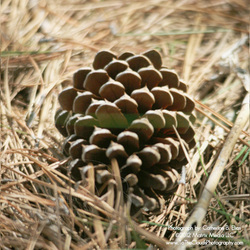|
Then Joshua gathered all the tribes of Israel to Shechem, and summoned the elders, the heads, the judges, and the officers of Israel; and they presented themselves before God. And Joshua said to all the people, ‘Thus says the Lord, the God of Israel: Long ago your ancestors—Terah and his sons Abraham and Nahor—lived beyond the Euphrates and served other gods. Then I took your father Abraham from beyond the River and led him through all the land of Canaan and made his offspring many. I gave him Isaac; and to Isaac I gave Jacob and Esau. I gave Esau the hill country of Seir to possess, but Jacob and his children went down to Egypt. Then I sent Moses and Aaron, and I plagued Egypt with what I did in its midst; and afterwards I brought you out. When I brought your ancestors out of Egypt, you came to the sea; and the Egyptians pursued your ancestors with chariots and horsemen to the Red Sea. When they cried out to the Lord, he put darkness between you and the Egyptians, and made the sea come upon them and cover them; and your eyes saw what I did to Egypt. Afterwards you lived in the wilderness for a long time. Then I brought you to the land of the Amorites, who lived on the other side of the Jordan; they fought with you, and I handed them over to you, and you took possession of their land, and I destroyed them before you. Then King Balak, son of Zippor of Moab, set out to fight against Israel. He sent and invited Balaam son of Beor to curse you, but I would not listen to Balaam; therefore he blessed you; so I rescued you out of his hand. When you went over the Jordan and came to Jericho, the citizens of Jericho fought against you, and also the Amorites, the Perizzites, the Canaanites, the Hittites, the Girgashites, the Hivites, and the Jebusites; and I handed them over to you. I sent the hornet ahead of you, which drove out before you the two kings of the Amorites; it was not by your sword or by your bow. I gave you a land on which you had not laboured, and towns that you had not built, and you live in them; you eat the fruit of vineyards and olive groves that you did not plant. ‘Now therefore revere the Lord, and serve him in sincerity and in faithfulness; put away the gods that your ancestors served beyond the River and in Egypt, and serve the Lord. Now if you are unwilling to serve the Lord, choose this day whom you will serve, whether the gods your ancestors served in the region beyond the River or the gods of the Amorites in whose land you are living; but as for me and my household, we will serve the Lord.’  I preached my first sermon at a Sunday night college ministry at an Assembly of God church. My mentor at the time was the college pastor. He offered a variety of hints and suggestions I'm sure but one has always stuck with me - When you're preaching, he said, answer the question that the smartest person in the room is asking. I remembered his hint this week because I'm stuck with a question from the text that may be the "question the smartest person in the room is asking." (I don't know if I like that distinction because it claims that I know what someone else is thinking and it assumes that I am so smart that I'm assuming what the smart people are thinking. Anyway....) The question: Of the wealth in our lives, where is privilege and what role has God played in it? God says to the people in the text, "I gave you a land on which you had not laboured, and towns that you had not built, and you live in them; you eat the fruit of vineyards and olive groves that you did not plant." It's true - in my professional life, I am receiving the benefits of the hard work of others who have followed God before me in faithfulness and generosity. It's true - in my personal life, I am experiencing the reward of my parent's hard earned money that put me through college, the confidence of colleagues and the constant presence of the Holy Spirit who has sustained me. It's true - I am "eating the fruit" that I did not plant. But it's also true - that we, through the work of the Spirit, are planting fruit faithfully. Can we honestly say that none of the "fruit" we are eating is a result of our hands? None of it? My understanding of privilege tells me that the very fact that I am able to deal in fruit at all, planting, reaping, harvesting, saving seeds and replanting, imagining new vineyards, selling and buying product is a result of privilege. The jobs we have landed, the money in our bank accounts, the food in our refrigerators, the stuff in our closets - the natural result of something having been planted in our lives. But... But... it's also true that we manage that which is cultivated in our lives. We are responsible for tending that which has been planted within us. We have been faithful at the jobs we have landed. We have saved when we could have spent. We have shopped righteously. What is the result of privilege and what is the result of hard work? And what -- honestly, what is the role God has played in our wealth? This is where I can feel the passion of Joshua as he admonishes the people, "Choose who you will serve." When Joshua looks back at the work of his hands, at the courage to take the land, at the destruction of Jericho, as the people changed from wanderers to settlers, Joshua clearly saw the work of the God. Joshua had a long view of history and he must've known that it is so often our propensity as humans to have the short view. We see the here and now, the meal to come and the meal that has just gone. We see the people in our lives today and the news stories that just hit the headlines. The long view and the short view tell different tales and they call for different choices it seems as well.
1 Comment
6/1/2023 04:01:11 am
Let our wealth not be the rival of God in our lives. Thanks for sharing!
Reply
Leave a Reply. |
Search this blog for a specific text or story:
I am grateful for
|

This work is licensed under a Creative Commons Attribution-NonCommercial-ShareAlike 3.0 Unported License.
